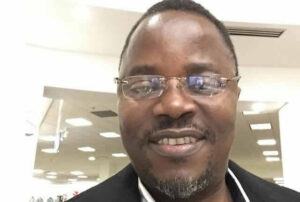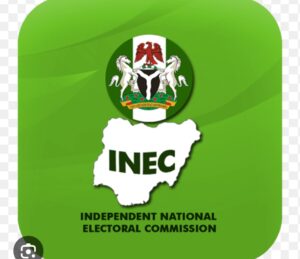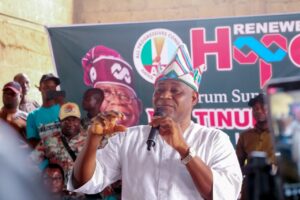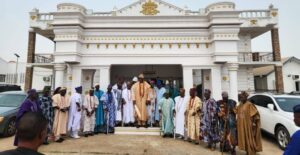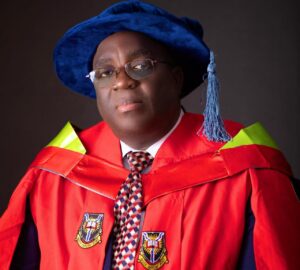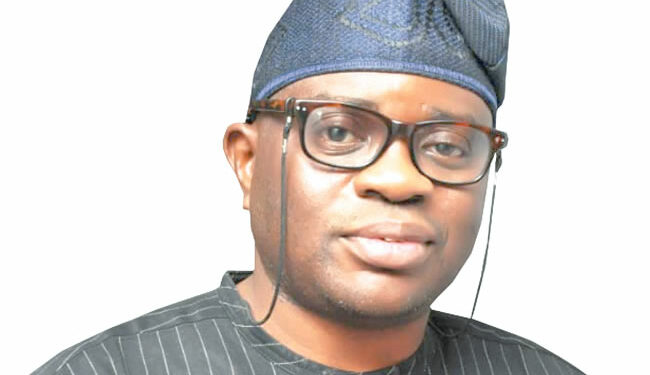
In a week when the Chief Emeka Anyaoku-led The Patriots, a group of eminent Nigerians, who are relentless in their quest for a better nation are kick-starting yet another inquest into constitutionalism and the Nigerian question, it is only apt that we discuss what ails our democracy and perhaps the possible antidotes to that ailment.
Having practiced democratic rule consistently for 26 years, some patterns are already emerging to indicate to us that democratic governance has not started delivering the goods that Nigerians yearned for in the 1980s and 1990s. And this calls on us all to take a cue from the proverbial good elder, whom the Yoruba will not be in the market and allows a mother back the baby awkwardly. Sometime ago. I discussed on this page what David Beetham in Parliament and Democracy in the Twenty-first Century called democracy paradox, a situation in which democratic rule promises so much but delivers so little in terms of dividends. It has become undeniable that Nigerians have been living witness to such a scenario since 1999. Broken promises by leaders, clueless governance, selfish and self-centred administrators, business men in power who trade with the fortunes of the state and all manners of actors that fail the tenets of democracy and yet stand stone faced as we discuss the failings of the dying damsel. They care not whether they are the cause of the high fever threatening to snuff life out of her.
As we speak, our people who saw democracy as their messiah from autocratic rule some 30 years ago are less enthusiastic to cast their votes at elections. Some would readily sell their votes and their conscience just for a pot of soup on election day.
Things are getting bad, and the patterns are emerging around accountability, succession issues, and the cost of governance. Will constitutionalism resolve the jigsaw? That’s a question The Patriots are trying to answer. To further help this inquest by our revered leaders, let us paint the picture of a typical Nigerian governorship office holder, so our elders know the enormity of the challenge at hand. The first thing to note is the huge financial involvement (entanglements) a governorship candidate has to get into before he wins an election. It is difficult for one man to solely finance a governorship election these days. By the time a candidate is being announced as winner by the Independent National Electoral Commission (INEC), he is already indebted to all manners of creditors, who are ready to collect double or more of their investment in his election. Next, he faces the huddles of legal battles against his election, which moves from the election tribunal to the Court of Appeal and then the Supreme Court. That further drains his pause for the next six months. After that, he settles down to offset the financial IOUs incurred in the process of the election. By the time he finishes doing that, considerably, he is already talking of a second term election. And remember that a governor seeking a second term ticket would have to spend double the amount he spent to prosecute the election in the first term because the states are higher.
By the time he wins the second term, he still must have some IOUs to clear, and that could take him into the second year of his second tenure. Then he starts packing “goodies” for his retirement and possibly resources needed to install a successor. In some cases, funds to finance a senatorial contest. So, if this is the typical pattern of a governor in Nigeria, where lies the hope that the common man would get a slice of the cake someday? The situation looks grim, but the chief priest is not supposed to relay evil messages. So the elders must keep trying.
But who do we blame for the monetisation of the political process, the annihilation of values and termination of patriotic thoughts in the political scene? Perhaps we go back to the basics like the elders would say, so as to know how long the vulture had been beaten by the rain.
Some analysts would trace the foundation of what we see today as evidence of a dysfunctional democracy to the attitude of pro-democracy actors of the military era, who failed to seize the initiative in 1998/99 as General Abdusalami Abubakar signalled the return to civil rule. So invariably, they ended up allowing the military contractors and elements who partook in the five fingers of a leprous hand in the Abacha regime to take over the stage.
The activists clamoured, some died, while standing on June 12, the annulled 1993 presidential election. They fought so hard that many had become battle weary by the time General Abdusalami Abubakar, who took power on the demise of Abacha in 1998, signalled a return to civil rule. His announcement looked too sweet to be true, they thought. Thus, rather than embrace the return to democracy song, they had become more skeptical than the doubting Thomas. Eventually, only the Afenifere branch of the National Democratic Coalition (NADECO),through the Alliance for Democracy (AD), was able to control the South West zone. Most of those who emerged as leaders of the political process in 1999 were not schooled in the tenets of democracy. Somehow, they started replicating their kind as the years rolled bye, and now the businessmen in politics have practically seized the reins.
So, while in 1999, we returned Nigeria to democracy without a democratic spirit, in 2025, some businessmen who only invest their funds in seeking election so they could reap the gains bountifully have taken over. A bad situation is growing worse and the constitution cannot offer some succour. The Houses of Assembly and the National Assembly at the national level are too prostate to provide checks and balances. The Executive is executing the law rather than projects that add quality to human living. This is the nature of the challenge The Patriots are trying to unravel.
They know that it is a huge task, but I also know that many of them who saw Nigeria grow from its infancy already know the cords to plug. As the elders would say, a river that gets filled to the brim in ones presence cannot sweep one away. The solution to these challenges cannot elude the youth and the elderly at the same time. One way I think we can solve this challenge of our democratic paradox is to deal with the monetisation of the process and then firm up some federal principles in the constitution and the electoral process to enable free and fair election and permit each state or region grown at its pace.
One of such ways is to remove the second term challenge for governors and the president. We need a single term for the president and governors. It could be five straight years, six or seven. Let their be no second term craze anymore because this reduces the office holder to some sort of slaves of political jobbers. As soon as a governor is sworn in for the first term, some jobbers are already composing songs to promote his second term. We saw appointees of President Bola Tinubu turn a two year scorecard session to a campaign rally recently. It is the same at the state levels. A single tenure for governors and the president can address a huge part of the monetisation scourge. Besides, we’ve seen this work well in the universities, so why not adopt it for the political system too.
An alternative to that is the adoption of the Parliamentary system of governance, which would mean that a lot of funds illegally being channelled to prosecute elections are saved. A premier or governor would not need to campaign round a state to emerge. All he or she needs is to win the confidence of the voters in his immediate constituency and then go to the chamber to emerge the premier or governor as we may wish to call it, among his peers. Right now, the desperation to secure a second term in office is milking the states of the resources and governmental time they badly needed. It also exposes the governors to all manners of conspiracy theories by political jobbers. I am of the strong view that adopting one of the options above would rescue our democracy from the path of destruction and death. Parliamentary system or a single term governorship and presidency will help.

